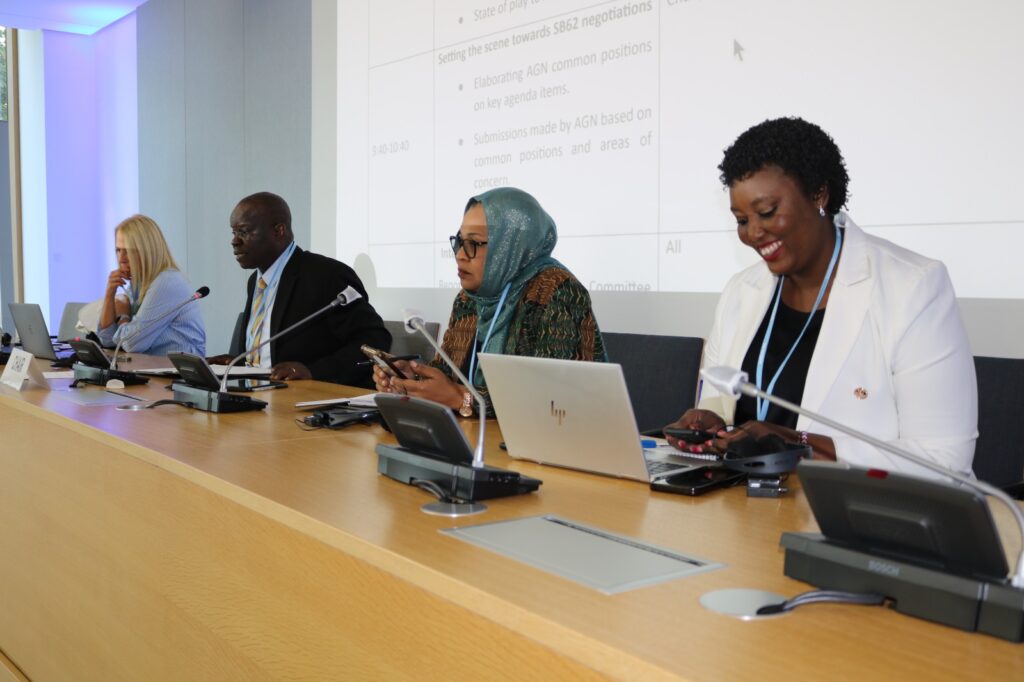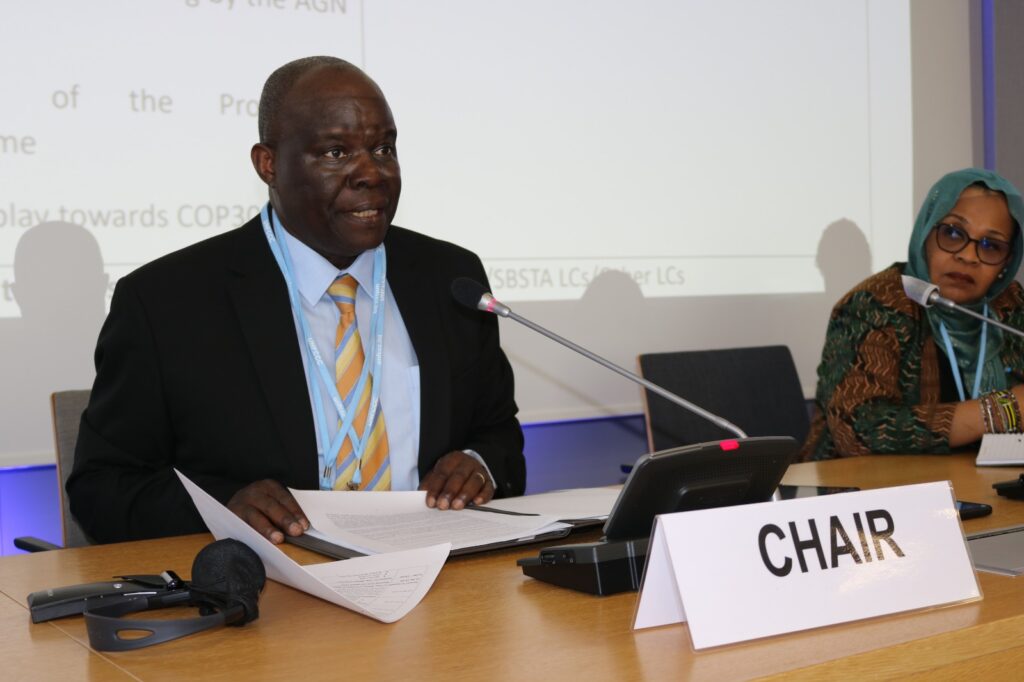By Jenifer Gila
Bonn, Germany. The African Group of Negotiators on Climate Change (AGN) has underscored the power of unity in international climate diplomacy, calling on African nations to maintain a collective stance to strengthen the continent’s voice in global climate negotiations.
Speaking on June 12, 2025. at the AGN Preparatory Plenary ahead of the 62nd session of the UN Climate Change Subsidiary Bodies (SB62) in Bonn, Germany, AGN Chair Dr Richard Muyungi emphasized that influence in climate diplomacy is often dictated by economic power, global status, and greenhouse gas emissions—areas where many African countries individually fall short.
“Unity is our greatest strength,” Dr Muyungi told delegates. “The AGN exists to coordinate Africa’s position, prevent conflicting messages, and guard against external forces exploiting divisions. With a united front, we can shape the global climate agenda.”
Dr Muyungi highlighted AGN’s long-standing role in promoting Africa’s interests in climate talks, particularly around adaptation, climate finance, and capacity building. He credited the AGN’s consistency and coordination for bringing global attention to Africa’s unique vulnerabilities.
Adaptation as a Cornerstone
Dr Muyungi stressed that adaptation remains the cornerstone of Africa’s climate agenda. He noted that the continent’s persistent advocacy helped secure adaptation’s recognition in major international frameworks—such as the Global Goal on Adaptation (GGA), the Paris Agreement, and the Nationally Determined Contributions (NDCs) of most developing nations.
“At one point, Africa was the only region explicitly mentioned in UN climate texts for its adaptation needs,” he said. “Today, adaptation is viewed as a global priority. That shift is a direct result of Africa’s unified voice.”
He pointed to several AGN-driven achievements: pushing for parity in financing between mitigation and adaptation, linking adaptation efforts to the global temperature goal, and elevating adaptation from a local issue to a shared global responsibility.

Clean Energy and Just Transition
Beyond adaptation, the AGN is prioritizing access to clean energy in the Bonn discussions—placing particular focus on Mission 300 and the Clean Cooking Project. These initiatives, endorsed during the African Union Summit in February 2025, aim to close the continent’s energy access gap while supporting a just energy transition.
Mission 300, launched with support from the World Bank and African Development Bank, seeks to provide electricity to 300 million Africans by 2030. The Clean Cooking Project is focused on scaling access to safe, affordable cooking technologies, especially in rural and underserved areas.
“These programs are essential to ending energy poverty, which impacts health, agriculture, education, and climate resilience,” said Dr Muyungi. “They must be integrated into global discussions on just transition and emissions reduction.”
Both initiatives have been strongly championed by Tanzanian President Samia Suluhu Hassan and were reinforced at AGN’s strategic meeting in Zanzibar in April.
As negotiations continue in Bonn, the AGN is urging African countries to remain cohesive, ensuring their collective priorities—especially adaptation and energy access—remain central in global climate talks.


